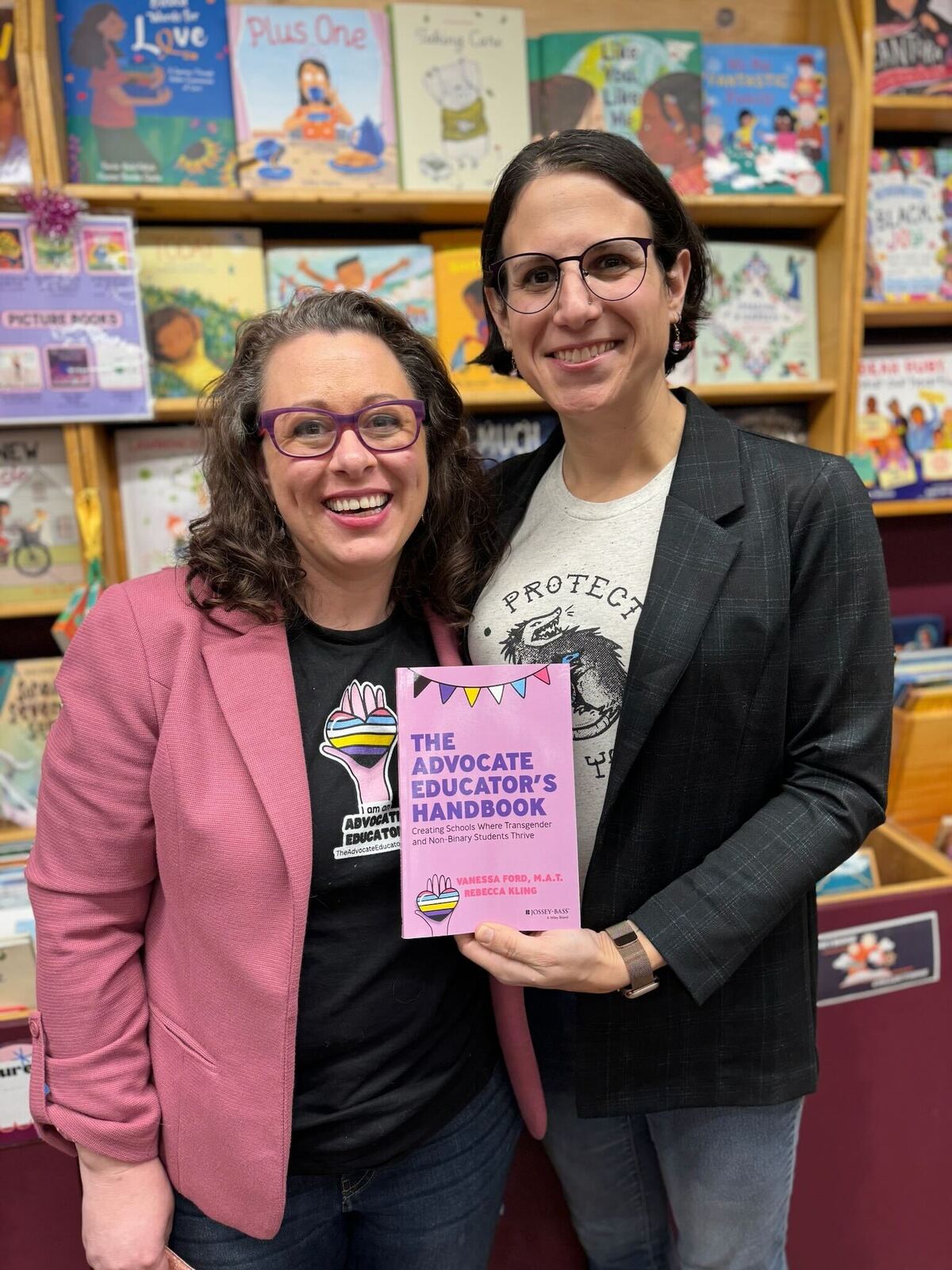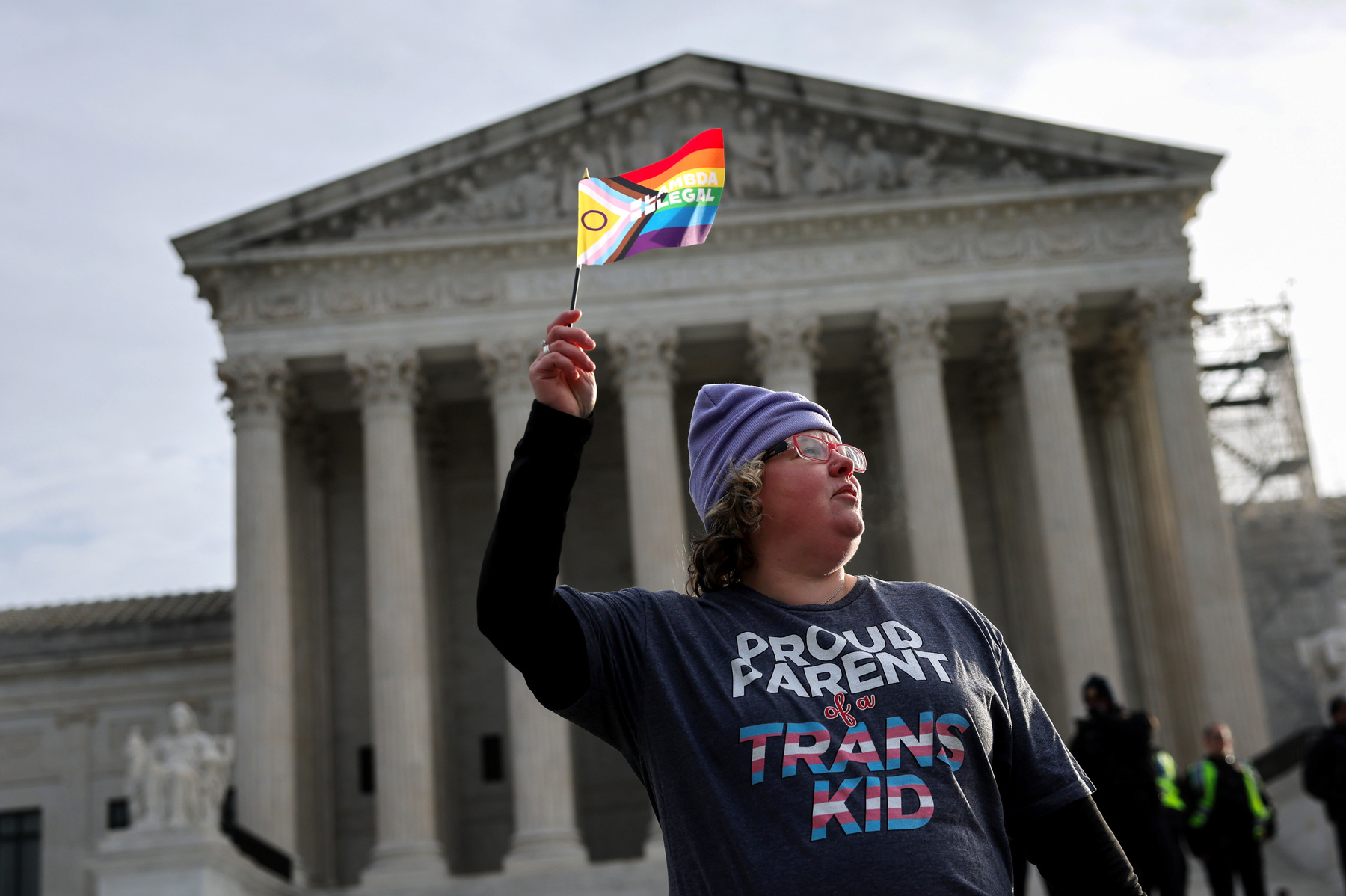Even before President Donald Trump penned an executive order barring schools from using correct pronouns for transgender students, Vanessa Ford and Rebecca Kling were inundated. Parents, teachers and students were asking them what to do. Ford, who is the mom of a trans teen, and Kling, a longtime trans advocate, are authors of the book “The Advocate Educator,” which illuminates how allies of trans students can best support them in schools.
The two sat down with The 19th to talk about how parents, teachers, administrators and others who support trans kids can step up and show their support for them.
This interview has been edited for length and clarity.
Kate Sosin: What are people asking you?
Vanessa Ford: I’m getting two perspectives in the outreach. Some are parents who are saying, “My child experienced this language at school today because of what happened with the executive order earlier this week.” And then I’m getting teachers who are saying, “How do I address this if it comes up in my classroom, and how can I be a better ally right now, knowing what your kid is probably carrying in their proverbial backpack?”
Does it depend on the state where a person is? Or is there blanket advice for people?
Rebecca Kling: It’s a little of both. There’s absolutely states that are strongly indicating that they are going to oppose the Trump administration. That’s got to feel very different in a state where there isn’t that sort of formal or official support from elected officials or from state government. And regardless of where you are in the country, whether you’re in Illinois or Massachusetts or California or Florida or Texas or Georgia, there’s a lot of uncertainty.
For teachers who want to support their kids but are concerned about the consequences, what advice do you have?
Vanessa Ford: One of the pieces that I think we’ve always gone back to is that you do not need to do this work alone. There are people in every community doing this work, and the idea is to tether to those folks. Inevitably, there are going to be folks who have dealt with these things before, and folks who are new to it.

For parents who are nervous about sending their kids to school now, what should they be thinking about in terms of how to support their young people?
Rebecca Kling: It can be critical to make sure that other parents in that friend group are aware that this is a heightened time of stress and potential for unknowns, making sure, again, that as much as possible, you’re not having to feel like you’re going it alone.
Vanessa Ford: One of the questions I got this morning right from a teacher was not just, “What can I do?”, but they then made a list of potential things. “Do I call my state rep? Do I donate to the ACLU? Do I, you know, check in with your kid and ask them how they are an extra three times?” They didn’t know exactly what to do, but they felt activated to do something educators are out there and feel that their students are under attack. They want to do right, and they’re scared.
Are people coming to you with questions about what battles to even choose? Like, should I fight this ban on sports at my school? Am I safe to do that in my community? I can imagine it’s a really scary time for families.
Rebecca Kling: And not just families. I was speaking with someone earlier this week who is a trans woman who was interested in public advocacy in the past week, got back to me, was like, “‘Yeah, actually, I don’t think I can be public. This is not the time for me to be an advocate.”
I am going to try and encourage this person anyway and say that there are lots of ways to show up and that advocacy is not just one thing, and that writing letters and calling from home can be impactful.
What levers do you hope that states or superintendents and administrators use to challenge some of this?
Vanessa Ford: I think in some states, they can use their budgetary powers to be able to allocate funds for things like professional development, additional mental health counselors, additional resources and inclusive texts. That’s not going to happen in a lot of spaces. I think the other way that superintendents can do it is if they have opportunities to make statements. We have seen around the country, where there are states that make a blanket law that X must be done, and a superintendent will say, “Not in my district.”
Rebecca Kling: Don’t obey in advance, and part of that is to not cede power to whether it’s an individual official or an agency or the entire executive branch of the federal government. They don’t legally have all of the power they are claiming to have and they won’t have it if we don’t give it to them.
Vanessa Ford: It does not need to be every single person at every single school board meeting. We need dining room conversations, school board meeting conversations, legislative conversations. We need people in all the places. No one can do everything, but everyone can do something. And I don’t think every educator has a responsibility to lose their job in support of trans people. I do think every educator has a responsibility to do something for trans students.
For young people looking at a changing school climate, who might be scared, what do you have to say?
Vanessa Ford: I think I told my own child, “Nobody’s words can take away your existence, your experience and your authentic way that you go out into the world, and there are adults in your life who are going to fight to protect you.”
Rebecca Kling: I’m going to give a different answer for adults than for young people. I want them to know that not only are their parents and families and educators fighting for them, that the trans community is fighting for them too. So for the trans youth, we fucking have your back. We’re going to be out there in the streets with you and for you, and we’re gonna do everything we can to fight for you.





